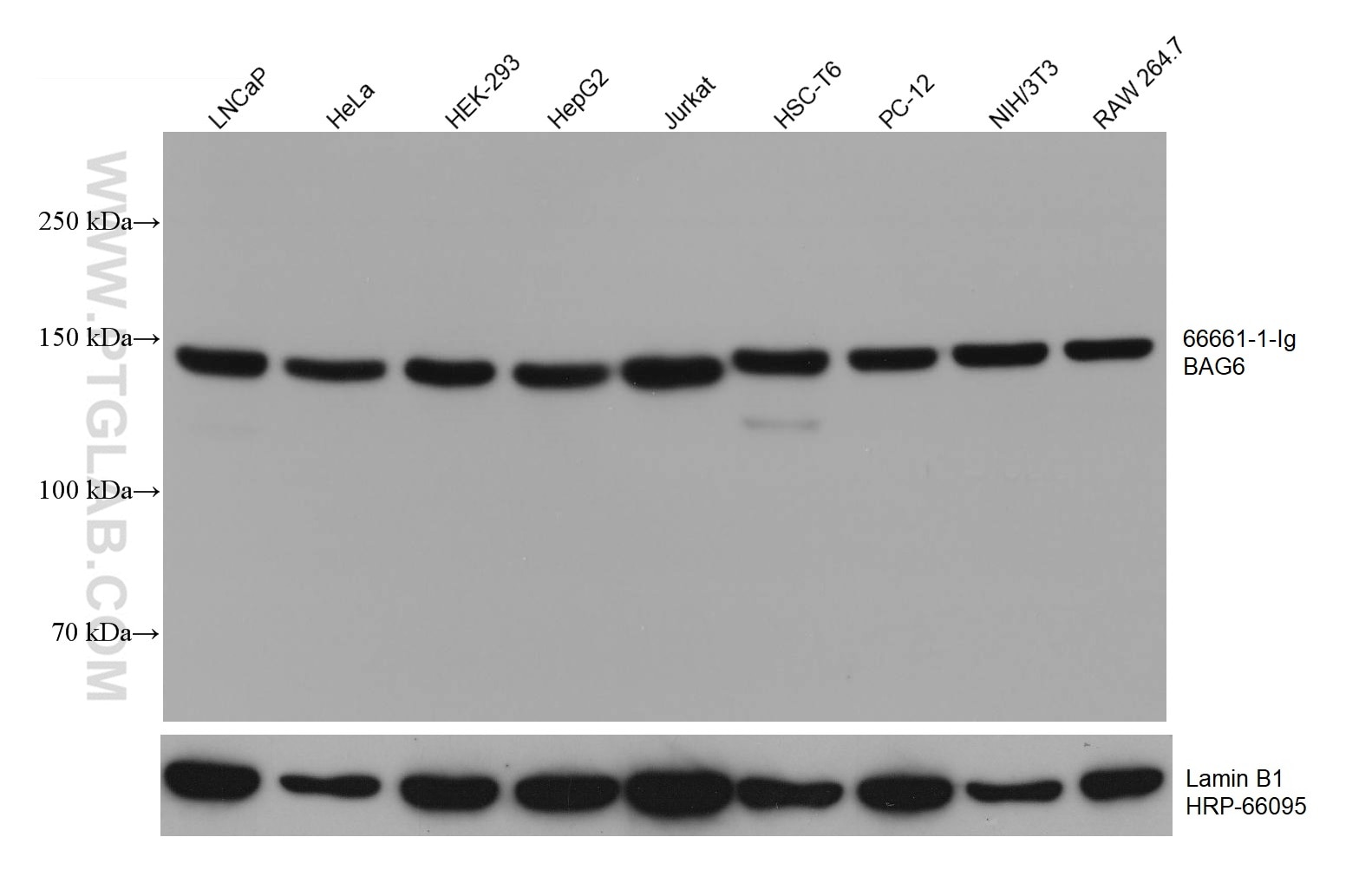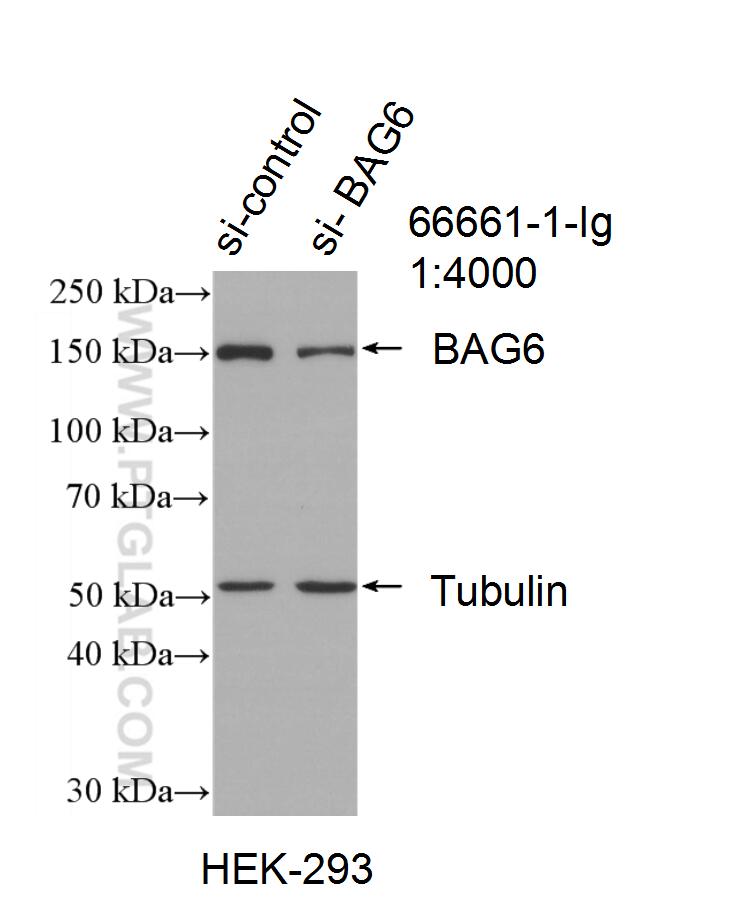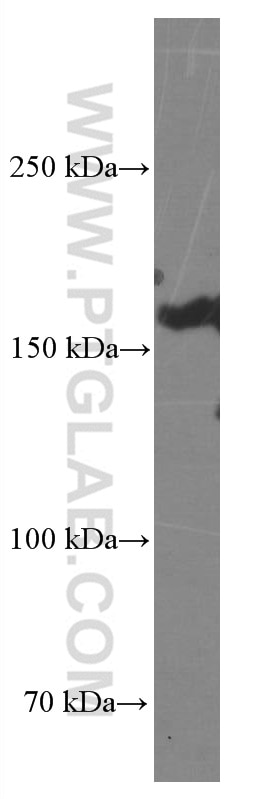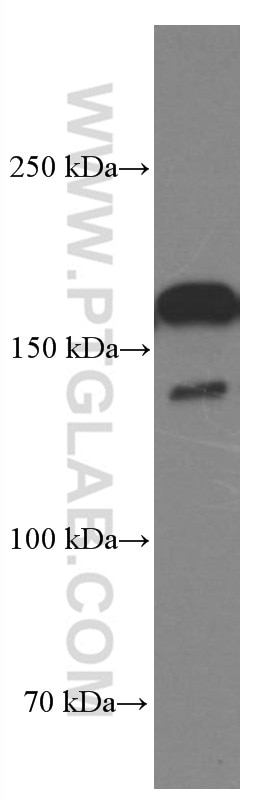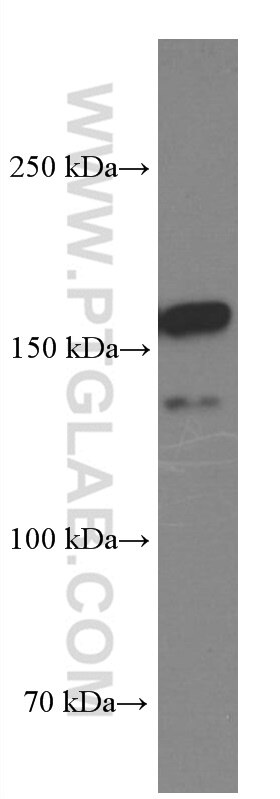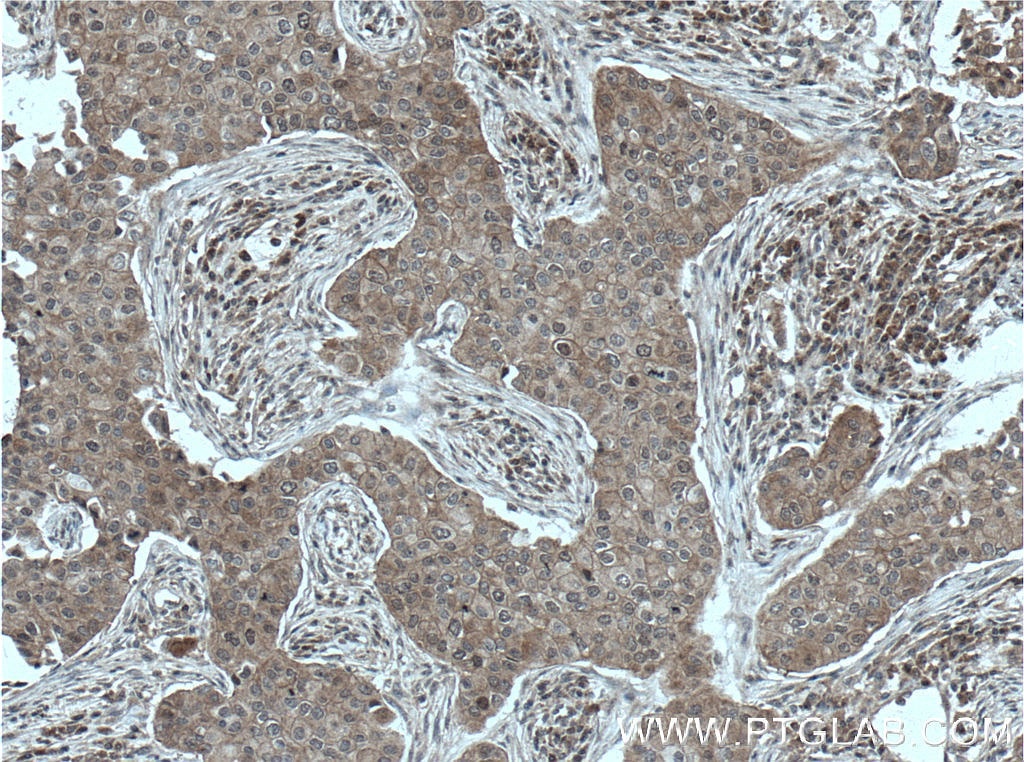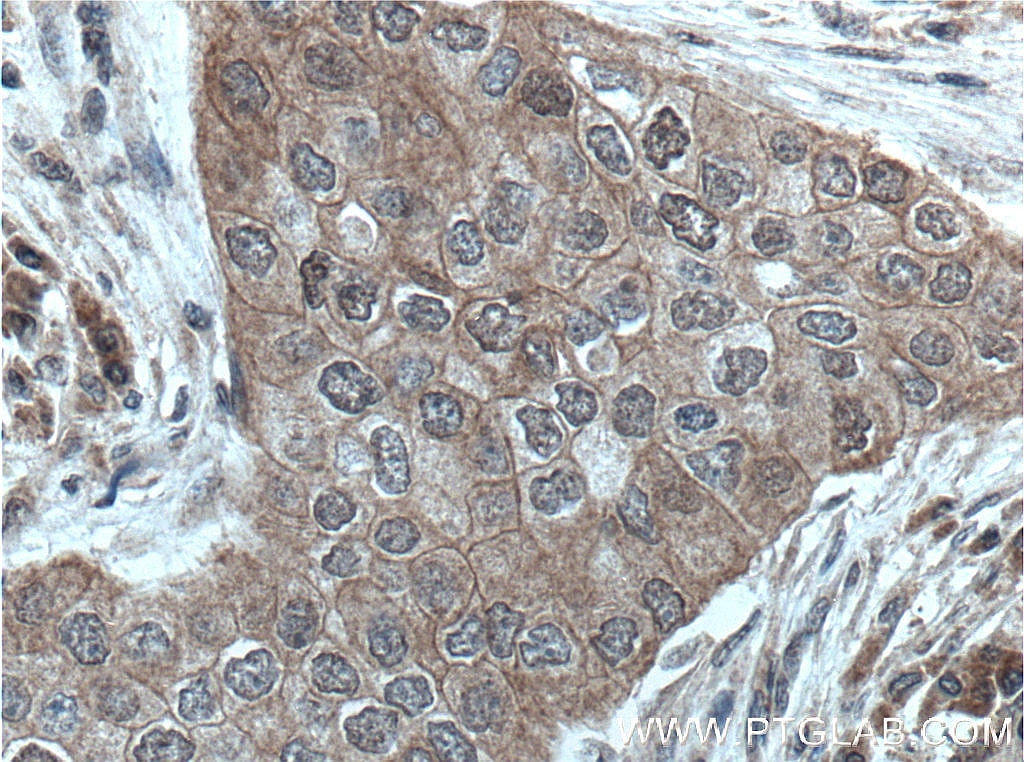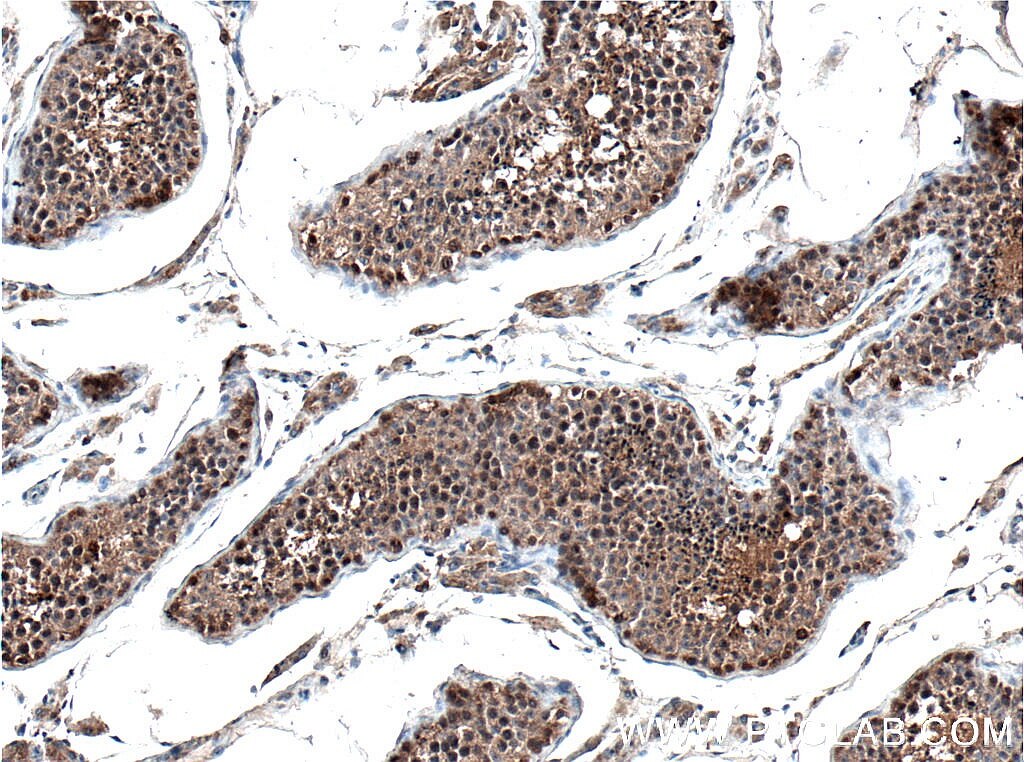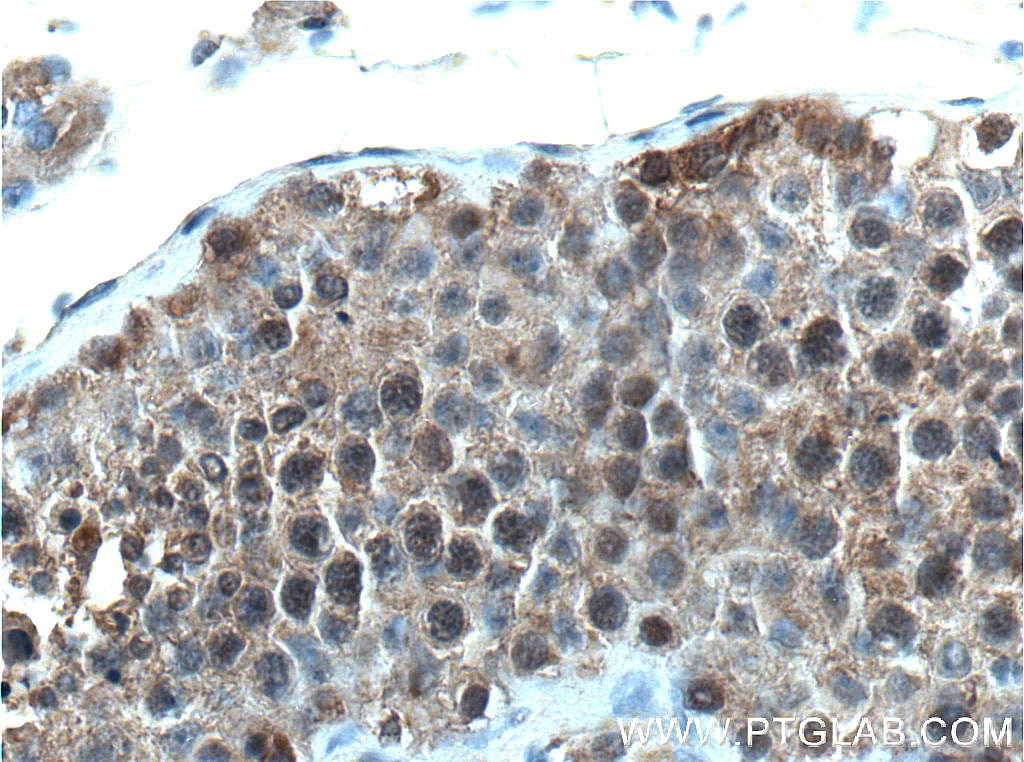- Phare
- Validé par KD/KO
Anticorps Monoclonal anti-BAG6
BAG6 Monoclonal Antibody for WB, IHC, Indirect ELISA
Hôte / Isotype
Mouse / IgG1
Réactivité testée
Humain, rat, souris
Applications
WB, IHC, Indirect ELISA
Conjugaison
Non conjugué
CloneNo.
1B8D3
N° de cat : 66661-1-PBS
Synonymes
Galerie de données de validation
Informations sur le produit
66661-1-PBS cible BAG6 dans les applications de WB, IHC, Indirect ELISA et montre une réactivité avec des échantillons Humain, rat, souris
| Réactivité | Humain, rat, souris |
| Hôte / Isotype | Mouse / IgG1 |
| Clonalité | Monoclonal |
| Type | Anticorps |
| Immunogène | BAG6 Protéine recombinante Ag24525 |
| Nom complet | HLA-B associated transcript 3 |
| Masse moléculaire calculée | 119 kDa |
| Poids moléculaire observé | 150-160 kDa |
| Numéro d’acquisition GenBank | BC003133 |
| Symbole du gène | BAT3/BAG-6 |
| Identification du gène (NCBI) | 7917 |
| Conjugaison | Non conjugué |
| Forme | Liquide |
| Méthode de purification | Purification par protéine A |
| Tampon de stockage | PBS only |
| Conditions de stockage | Store at -80°C. 20ul contiennent 0,1% de BSA. |
Informations générales
BAT3 also known as Scythe or BAG6, is a nuclear protein implicated in the control of apoptosis and natural killer (NK) cell-dendritic cell (DC) interaction. BAT3 was first discovered as a member of a group of genes located within the class III region of the human major histocompatibility complex on chromosome 6, and has been extensively studied for its role in regulating apoptosis under various stress conditions such as DNA damage and endoplasmic reticulum-related stress. BAT3 has been shown to be required for p53 acetylation, which is critical for the enhancement of p53 transcriptional activity in response to DNA damage. In addition, BAT3 is involved in the regulation of development and reproduction of mammals by acting as a co-chaperone of the heat shock protein HSP70.
